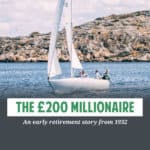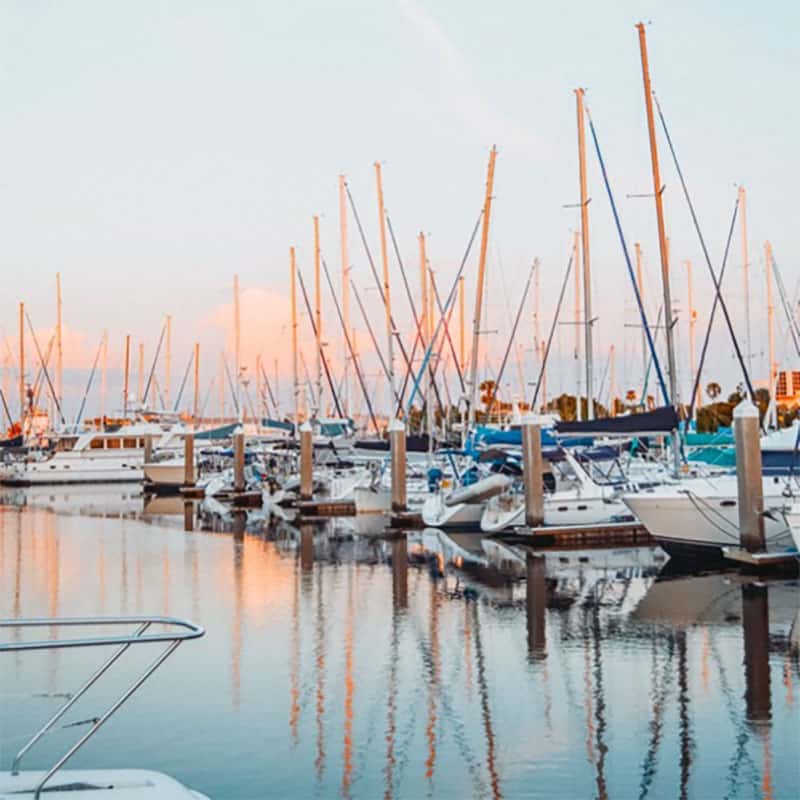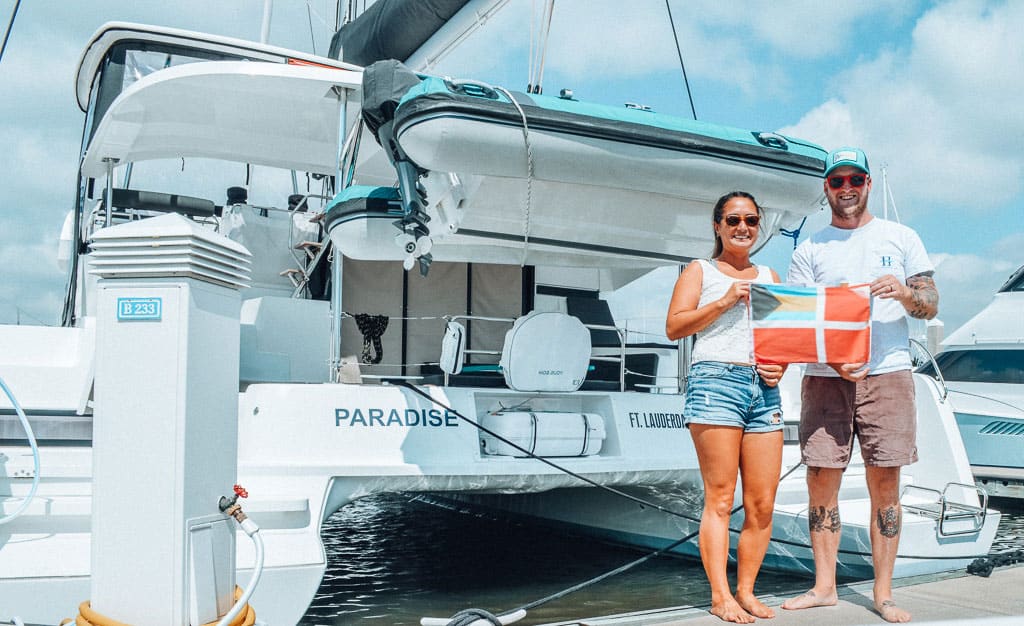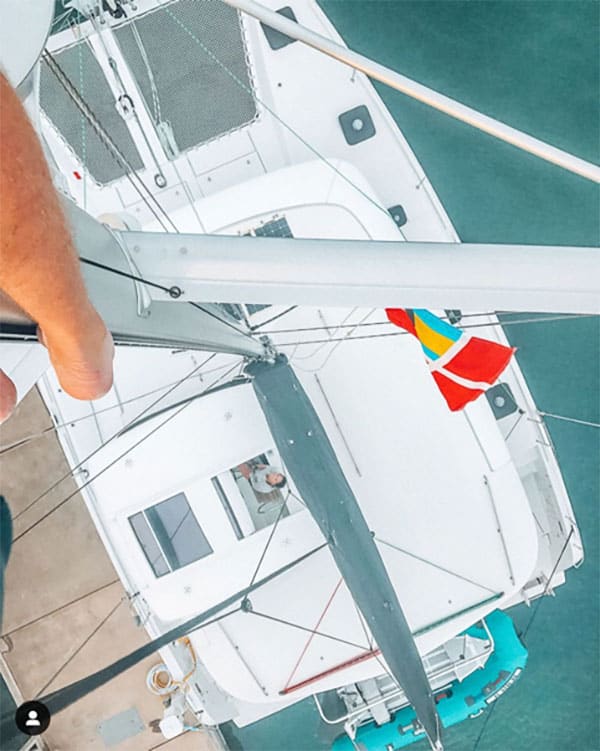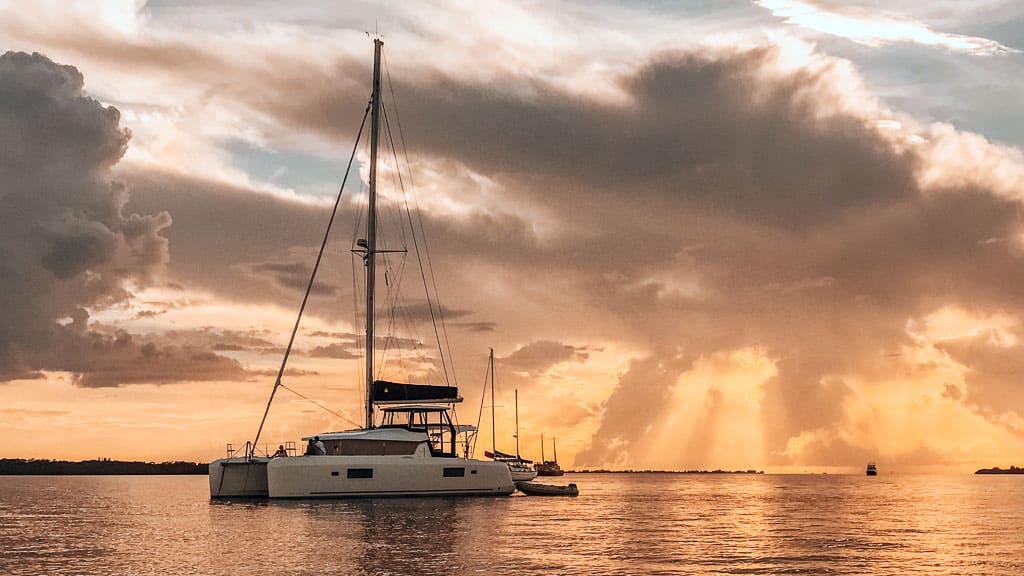The £200 Millionaire: An early retirement story from 1932
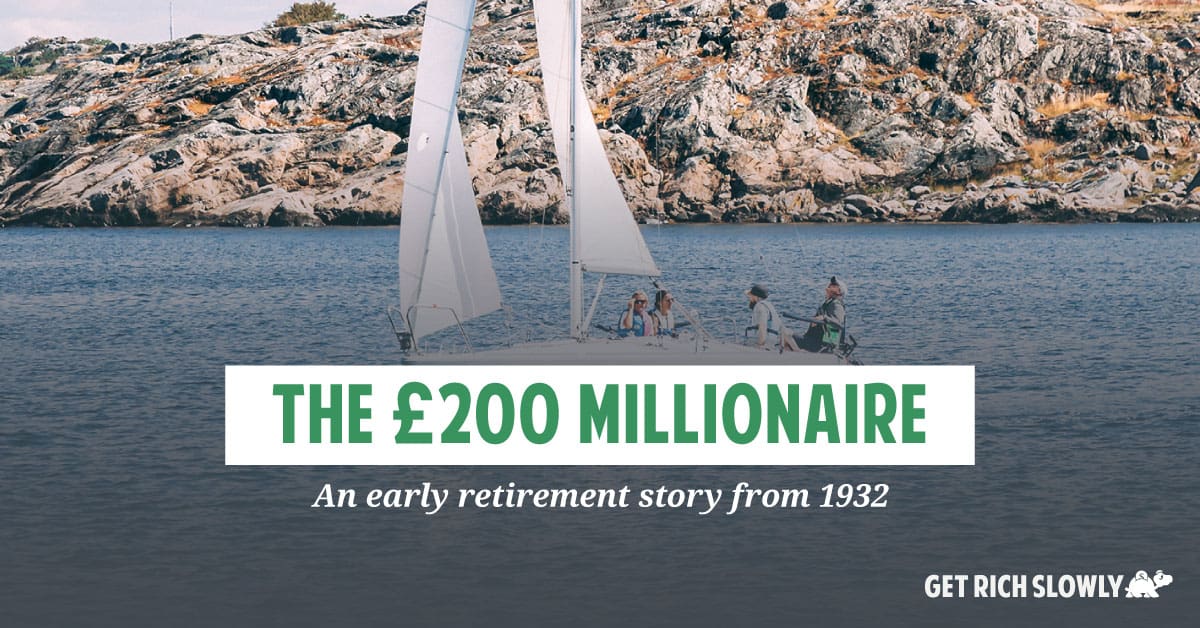
J.D.’s Introduction
While reading an obscure book about retiring early to a life at sea — Voyaging on a Small Income by Annie Hill (1993) — I discovered a short story from a man named Joseph Weston-Martyr.First published in 1932, The £200 Millionaire reads like “Mr. Money Mustache at Sea”. It’s fascinating. Because today I start a ten-day Mediterranean cruise, I thought it’d be fun to share this story at Get Rich Slowly.
This is a long story. It contains 8001 words, which is 32 printed pages. I’ve formatted it for web-based reading (I don’t think you want to read a 500-word paragraph on your phone!), plus added images and hyperlinks. Please enjoy it as weekend reading!
Some images are obviously meant to illustrate the text. Others are from Michelle at Making Sense of Cents, who graciously agreed to let me use her photos here. She’s been living on a sailboat since May 2018.
The £200 Millionaire
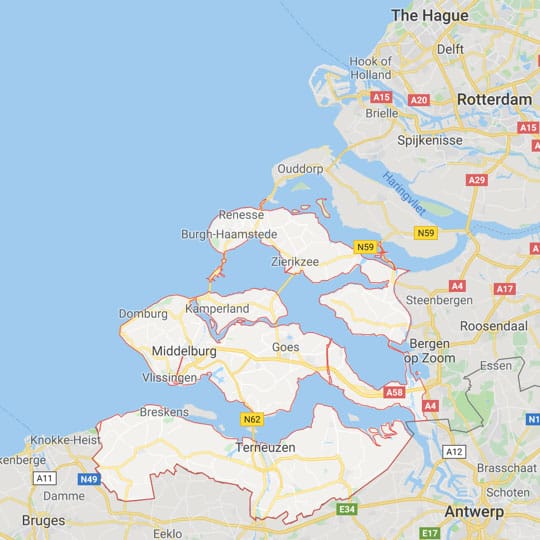
A little green sloop, flying the Red Ensign, followed us into port. She was manned solely by one elderly gentleman, but we noted that he handled the boat with ease and skill.
It was blowing hard, and the little yacht ran down the harbour at speed, but when abreast of us she luffed head to wind, her violently flapping sails were lowered with a run, and she brought up alongside us so gently that she would not have crushed an egg.
We took her lines and made them fast, while her owner hung cork fenders over the side and proceeded to stow his sails. Urged by a look from my wife which said, “He is old and all alone. Help him,” I offered to lend the lone mariner a hand. But he refused to be helped.
Said he, “Thank you, but please don’t trouble. I like to do everything myself; it’s part of the fun. But do come aboard if you will, and look round. You’ll see there’s nothing here that one man can’t tackle easily.”
We went aboard and found the green sloop to be one of the cleverest little ships imaginable.
Aboard the Green Sloop
It is difficult to describe her gear on deck and aloft without being technical; suffice it to say, therefore, that everything was very efficient and simple, and so designed that all sail could be set or lowered by the man at the helm without leaving the cockpit.
The boat was 30 feet long by 9 feet wide, and my short wife, at any rate, could stand upright in her cabin.
Her fore end was a storeroom, full of convenient lockers, shelves and a small but adequate water-closet. Abaft this came the cabin, an apartment 12 feet long, with a broad bunk along one side of it and a comfortable settee along the other. A table with hinged flaps stood in the middle, while in the four corners were a wardrobe, a desk, a pantry and a galley.
Abaft all this was a motor, hidden beneath the cockpit floor. A clock ticked on one bulkhead, a rack full of books ran along the other, a tray of pipes lay on the table, and a copper kettle sang softly to itself on the little stove.
“What do you think of her?” said our host, descending the companion.
“Before you tell me, though, I must warn you I’m very house-proud. I’ve owned this boat for ten years, and I’ve been doing little things to her all the time. Improving her, I call it. It’s great fun.
“For instance, I made this matchbox-holder for the galley last week. It sounds a trivial thing; but I wish I’d thought of it ten years ago, because during all that time I’ve had to use both hands whenever I struck a match.
“Now I have only to use one hand, and you know all that implies in a small boat, especially if she’s dancing about and you’re trying to hold on and cook and light the Primus at one and the same moment. Then there was the fun of carving the holder out of a bit of wood I picked up, to say nothing of the pleasure it gives me to look at a useful thing I’ve made with my own hands. The carving brought out the grain of the wood nicely, don’t you think?
“Now I’m going to make tea, and you must stay and have some with me.”
Thought-Provoking Discourse
We did stay to tea. And we are glad we did.
For one thing, it was a remarkably fine tea, and, for another, we listened to the most entertaining and thought-provoking discourse we have ever heard in our lives.
That discourse, in fact, was so provocative of thought that it looks as if it were going to change the whole course of our lives for my wife and me.
Said our host, “I hope you will like this tea. It’s brick tea, caravan tea. I got hold of it in Odessa, where it was really absurdly cheap. That’s one of the advantages of this kind of life, I find. Cruising about all over Europe in my own boat, I can buy luxuries at the source, so to speak, at practically cost prices.
“There are four bottles of Burgundy, for example, stowed in the bilges under your feet, the remains of a dozen I bought at Cadaujac while cruising along the Garonne canal. I bought the lot for less than twenty shillings, and it’s the sort of wine you pay a pound a bottle for in London.”
J.D.’s note: I always have to remind myself of British monetary conversions when reading stories like this. To refresh your memory and mine: Twelve pennies (or twelve pence or 12 d.) equals one shilling (1 s.). Twenty shillings (20 s.) equals one pound (£1). So, there are 240 pennies (240 d. per pound. There’s more money talk to come, so this info is helpful to know.
“When I come across bargains like that it makes me wish this boat was a bit bigger. It’s surprising what a lot of stuff I can stow away in her, but I really need more storage space. If I had room I would buy enough cigars, for instance, in this country where they are good and cheap, to last me over the winter.
“You see, I like the sun, and in two months I shall be going down the Rhone to spend the winter in the south of France, and the tobacco there is horrible and expensive.”
Bread and Tea
“Do you live aboard here all alone always?” exclaimed my wife, making her eyes very round.
“Most certainly,” replied our host.
“Now do try some of this Macassar redfish paste on your toast. I got it in Rotterdam from the purser of the Java Mail that arrived last week, so it’s as fresh as it’s possible to get it.
“It’s really a shame to toast this bread, though. It’s just the ordinary bread the bargees buy, but I find Dutch bread is the best in all Europe. Some French bread is good, but it won’t keep as long as this stuff will.
“Sailing down the Danube a year or so ago I got some really excellent bread in Vienna, but it was a little sweet and not so good for a steady diet as this Dutch stuff.
“The worst bread I ever got was in Poland. I was cruising through the East German canals and I thought I would sail up the Vistula via Cracow, with the intention of putting the boat on the railway when I got to the head of the Vistula navigation at Myslowitz, shipping her across the few miles to the Klodnitz canal, and then cruising through Silesia and Brandenburg via Breslau down the Oder.
“It was a good and perfectly feasible plan, and I fancy it would have been interesting. But that horrible Polish bread defeated me completely. It was about all I could get to eat, and it seemed to consist entirely of straw and potatoes. So I turned back after passing Warsaw, and fled down the Vistula and the Bromberg canal and on by the Netze to Frankfurt.
“Do have some more tea.”
The Rime of the Ancient Mariner
We had some more tea. It was a marvellous brew, as stimulating as good wine, and while we drank it our curiosity concerning our host and his extraordinary mode of life welled up within us, to drown at last our manners and overflow in a stream of questions.
“Do you really mean,” said we, “that you live aboard here always? All the year round? And quite alone? And cruise to Odessa? And Warsaw? And how did you get to the Danube? And the Black Sea? And—? And —?”
Thus we went on, while our host smiled at us – the kind of smile that told us we had made a new friend.
“I’ll tell you,” he said, when we stopped at last for breath. “You understand boats and this sort of life, I think, so you’ll understand me.
“I’ve been living aboard this boat for ten years now, and I hope I shall never have to live anywhere else as long as I’m alive. It’s a good life. It’s the best kind of life a man can lead — or a woman either. It really is life, you see. Yes. And I think I ought to know.
“I shan’t see sixty again, and I’ve seen a good deal of life — of different kinds. I’m a doctor, or was once. And I’ve worked very hard all my life trying to be a good doctor, but failing, I fear, on the whole.
“I married and we had five children, and it meant hard work bringing them up properly and educating them. But I worked and did it. Then I moved to London to try to make some money. That was the hardest work of all.
“Then the war came, and more hard work in a base hospital. The war killed two of my sons — and my wife. And when it was all over I looked around, and I didn’t like the look of the life I saw ahead of me. To go on working hard seemed the only thing left to do, but I found there was no zest left in my work any more.

“My daughters were married and my remaining son was doing well in a practice of his own. I found my children could get on very well without me. So there was no one left to work for, and I found I was very tired.
“I sold my practice and retired to Harwich, where I was born. And there I soon found out that having nothing to do at all is even worse that working hard at something you’ve lost interest in.
“I did nothing for six months, and I think another six months of that would have been the death of me. By then I feel I should have been glad to die.
“But this little boat saved me. I began by hiring her from a local boatman for one weekend. We sailed up the Orwell to Ipswich and back again. The weather was fine, the Orwell is a lovely river, and I enjoyed my little sail. I enjoyed it so much, in fact, that I hired the boat again. I hired her for a week, and this time I left the boatman behind and sailed alone.
“Of course, I had sailed boats before.
“As a boy I got myself afloat in something or other whenever I had a chance, and my holidays as a young man were nearly all spent aboard yachts. So I found I could still handle a boat especially this little thing in those sheltered waters, and I remembered enough seamanship to keep myself out of trouble.
“I sailed to Pin Mill, and then up the Stour to Manningtree and Mistley. After that I grew bolder, and one fine day with a fair wind for the passage, I coasted along the Essex shore to Brightlingsea. I explored the Colne and its creeks, and the end of my week found me at West Mersea, so I had to write to the boatman and extend the time of hire. While I was about it I chartered the boat for a month.
“You see, I discovered I was happy, and I could not remember being happy for a very long while.”
Freemasonry Amongst Sailors
“The exercise and the fresh air and the plain food were all doing me good, too. I’d been getting flabby and running to fat, but the work on the boat very soon altered all that. I would turn into my bunk every night physically tired, knowing I would fall fast asleep at once, and looking forward to waking up again to another day of seeing after myself and the boat, and pottering about and enioying my little adventures.
“The life, in fact, was making me young again — and I knew it.
“I would get up in the morning as soon as the light woke me and wash and shave and cook my breakfast. I used to stick pretty faithfully to coffee, bacon and eggs, and bread and marmalade in those first days, I remember. I was not much of a cook then, and I had yet to learn the pleasure one can get out of cooking a really good meal, not to mention eating it.
“Then I washed the breakfast things, cleaned up the cabin and washed down the deck. Housemaids’ work, but there’s not much of it needed to keep this small boat clean and tidy. And what little work there is soon became a labour of love.
“When I had made the boat all ship-shape I would sit in the cockpit and smoke, and look at her with great pride and contentment. I still do that. It gives me pleasure to see my home in perfect order and to feel that I’ve done it all myself. And I know, now, that if I paid someone else to do the work for me I should be depriving myself of a deal of the charm of life.
“When my morning chores were done, and if the weather was fine and I felt like moving on, I would heave up my anchor and make sail.
“During that first month I think I must have explored nearly all the rivers and creeks that run into the Thames Estuary. Most of them, as you probably know, are charming.
“If I wanted company I would bring up in the evening in one of the anchorages frequented by yachts, or alongside some Thames barges. There’s a delightful freemasonry amongst sailors, whether yachtsman or bargees, and I’d generally find myself yarning and smoking with some congenial souls in my own or someone else’s cabin until it was time to turn in.”
J.D.’s note: A similar camaraderie exists among RVers. During our 15-month RV trip across the U.S., Kim and I enjoyed many nights in the company of our fellow travelers. Remember: RVs are simply boats on land.
“At other times I would let go my anchor for the night in some quiet creek, with never a human being within miles. I liked that best. I needed peace and quietness and I found them, to perfection, in those little lost Essex creeks.
“When the weather was bad, or the wind and tide did not serve, I would have a major clean-up, perhaps, or merely potter about, doing the little jobs of work a boat can always provide for you.
“Or I’d put my watertank and a big basket in the dinghy and row to the nearest village to replenish my stores.
“One thing is certain, I never for a moment found time hanging heavily on my hands. There was always something to occupy me and always something interesting to see or to do. The life suited me and I throve on it, body and mind. And the way I threw off the years and turned into a boy again was perfectly amazing.”
The Question of Finance
“My month was up almost before I knew it, and when it did get time to go back to Harwich and all that meant, I simply could not bear the thought of it. To think of returning to the sort of life I’d been leading on shore was as dreadful as the prospect of having to serve a life sentence in prison. I did not like the thought of it but there did not seem to be anything else I could do.
“You see, I’ve not got very much money. I had just enough to allow me to live, very simply, and even the expense of hiring this boat was really more than I could afford. What I wanted to do, of course, was to go on living aboard here, but, to my sorrow, that seemed quite impossible.
“Then, one night, I sat down in this cabin and thought the thing out — right out, in all its bearings.
“First I considered the question of finance. I don’t want to bore you with my private affairs, but the figures are, I think, instructive and valuable, as they show what a lot can be done with very little.
“My capital amounted to a little over £4000, and my yearly income just touched £200. The problem I set out to solve was: Can I buy the boat out of my capital and still have sufficient income to live aboard her all the year around, and to maintain the boat and myself adequately?”
J.D.’s note: Early retirement folks will note that the old sailor is using a five-percent withdrawal rate. Interesting, right? Nowadays, we tend to talk about a four-percent safe withdrawal rate when planning for retirement. This isn’t far off.
“The price of the boat I knew already; she was for sale for £200. If I bought her my income would be reduced to £190, or less than £16 a month. Was this enough? It did not look like it, by any means. It meant only £3 17s a week to cover food, clothing, light and heat, and upkeep and repairs to the boat, to say nothing of depreciation and insurance.
“The figure seemed so ridiculous that I nearly gave up my idea in despair.
“However, I am, thank goodness, a methodical sort of man, and I’d kept a list of my expenses during the time I’d been living aboard the boat.
“I analysed that list, and found that my food and oil for the lamps and stove had cost me only £7 15s for the month. I had also spent 30s on gear for the boat, such as paint, ropes, shackles and such things, while my bill for petrol and lubricating oil came to 15s only, as I had sailed as much as possible and used the motor as little as I could.
“Not counting the cost of hiring the boat, my total expenditure had, therefore, been only £10 for the month, or £120 a year. This left £70 over for repairs, accidents, depreciation and insurance.
“As far as the finance was concerned, the thing began to look possible after all.”
Worried About Winters
“I was very cheered by this discovery, and I then asked myself: ‘Can I continue to live aboard this little boat from year’s end to year’s end in health and comfort of body and mind?’
“As far as the summers were concerned I knew I could answer that with a whole-hearted ‘Yes.’ But what about the winters? Could I endure being shut up in a small confined space while the gales blew and it was cold and wet, and the nights were long and dark? I wondered.
“And I had to admit to myseif, very much against the grain, that I probably would not be able to endure these things.
“I remember I went to bed after that, feeling very miserable. But when I woke up next morning the first thing I said to myself was ‘but why stay in England in the winter: Why be cold and wet when all you have to do is to follow the sun and sail your boat (your Home) south?’
“To cut all this short, I sailed back to Harwich and sent to London for a map of the French canals. And when it came I found my idea of following the sun south was entirely feasible. All I had to do was to choose a fine day in early autumn and sail across the Channel from Dover to Calais.
“From Calais the map showed me a network of canals and navigable rivers spreading over the whole face of France, and I discovered that a boat of this size and draught could proceed through those inland waterways right through the heart of France to the Mediterranean.
“I bought this boat that same day. I had a few small alterations made to her, and the following week I sailed from Harvvich, bound south—for Ramsgate, Dover, Calais, Paris, Lyons, and the Riviera.”
“Well done!” I cried.
And my wife said, “Hush! And then? Then?”
Our new friend smiled at us again. “Yes,” he said. “You’re right. It was a bit of a rash proceeding — at my age. But I’ve never regretted it.”
A Regular Christopher Columbus
“That first cruise was perfectly delightful and, on the whole, a very simple affair. I had my troubles, of course. I got to Dover easily enough by coasting all round the Thames Estuary and putting in somewhere snug every night. But I stayed in Dover for ten days before I judged the weather was fine enough for me to sail to Calais.
“The truth is, I was rather scared. The passage is only twenty-one miles, but I felt a regular Christopher Columbus when I ventured across the Channel at last. It was a fine day, with a light north-east wind, and under sail and motor I got across in four hours. But I assure you Columbus was nothing to me when I sailed into Calais harbour!”
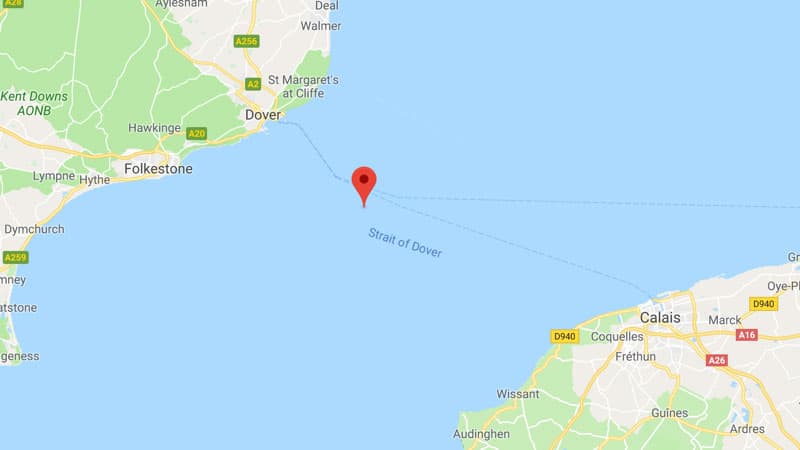
“I felt I had triumphantly accomplished a most tremendous adventure, and I was immensely pleased and proud. And I can assure you it’s rather remarkable for anything to make a cynical and disillusioned old man of my age feel like that.
“From Calais onward it was all canal and river work. It took me two months to get to Marseilles, because I went a round-about way and took my time over it. I had no need to hurry, of course, but I don’t think anything could have made me hurry through the lovely country in which I found myself.
“I wandered down the Oise to Paris, where I stayed a week, moored in the Seine almost in the Shadow of the Champs-Elysees’ tree. It was amusing and comfortable, too, living in the middle of Paris like that. I could dine ashore if I wanted to and go to a theatre, and then walk back and go to bed in my own floating hotel without any fuss or bother. And when I got tired of the city I just moved on, hotel and all.
“I went up the Marne to Chalons, along the canals to Bar-le-Duc and Epinal, and down through the Haute-Saone and Cote d’Or country to Macon and Lyons. I mention these towns to show you the route I took, but it was all the little out-of-the-world places between them that I used to stop at and which I found so interesting.
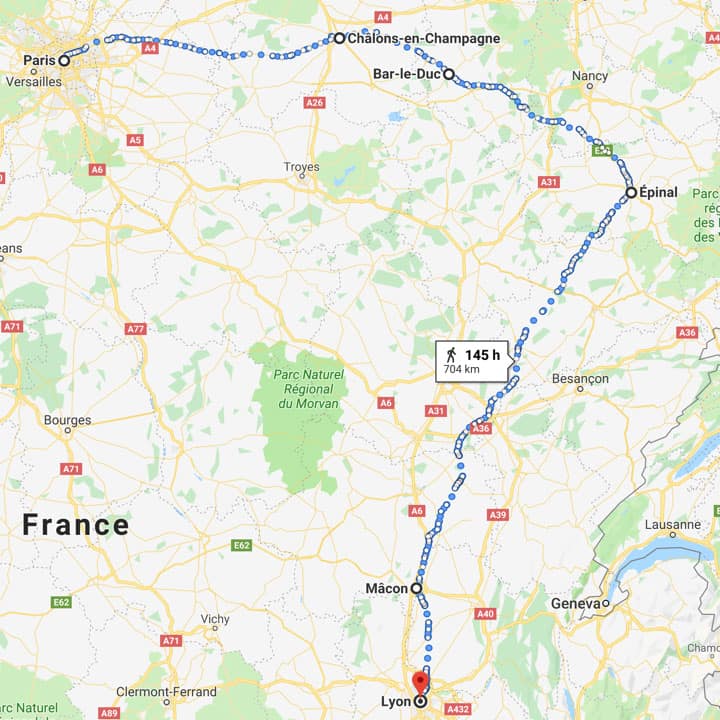
“I met all sorts of people and everyone was very helpful and kind, and by the time I got to Lyons I could speak about four different brands of French quite well.”
“Well Within My Income”
“The passage down the Rhone to Arles was rather strenuous. The current is very strong and I had to take a pilot, which spoilt my fun; but it was soon over, and I got to Marseilles without any more bother.
“I had got as far south then as I could get, so I spent the rest of the winter in most of those delightful little harbours which sprinkle the coast between Marseilles and Frejus. I found practically no winter along that stretch of coast, which is much better, I think, than the Riviera proper. I can recommend Porquerolles if ever you find yourselves down that way, while Port Cros must be one of the loveliest places there are on this earth.
“I enjoyed every minute of that first winter, and by the time the spring came round I knew I had discovered the perfect life. I was happier than I ever hoped to be, and healthier than I had ever been. I found myself looking forward to each day, and every day had some new interest.
“Life was, without exaggeration, nearly perfect.
“If I found myself anywhere or amongst people I did not care for, all I had to do was to heave up my anchor and go somewhere else. That’s one of the many advantages of living aboard a boat. When you want to go away there’s no packing, no taxis, no tips, no trains and no bother. And you haven’t got to find a place to lay your head when you get to your journey’s end.
“In a boat you just move on, and your sitting-room, your kitchen, your bedroom and all your little personal comforts and conveniences move on with you. And when you get to your destination there you are, at Home.
“It added to my peace of mind, too, to find I was living well within my income, in spite of the fact that I was living very well and doing myself a great deal better than I had, for instance, in my Harwich lodgings.
“Of course I had to be careful and not go in for too many luxuries, but I lived as I wanted to live, and it surprised me to find how little it cost me to do it. I’ll show you my account book, if it will interest you, but first I’ll show you where I’ve been during these last ten years.”
Sailing Through Europe
“Look at this! It’s the offcial French canal map, showing all the canals and navigable rivers in the country. You’ll notice there’s very little of France you can’t get at by water. It’s almost unbelievable where you can go; everywhere, practically, except to the tops of the mountains.
It’s the same in Belgium and Holland, and in Germany, too, and until I got these canal maps I had no idea of the extraordinary manner the inland waterways of Europe have been developed. The ordinary maps don’t give the details, so perhaps it’s not surprising that people in England don’t realise they can travel in a yacht from Calais through every country in Europe, except Spain and Italy, entirely by river and canal.
“It sounds incredible, doesn’t it? But I’ve done it myself, in this boat. Including Switzerland!”
“Switzerland!” cried my wife. “How did you?”
“There are two ways of getting there,” said our extraordinary friend. “Up the Rhine Lateral canal, or the way I went — up the Rhine-Rhone canal from Strassburg to Mulhause and along the Huningue canal to Basle.
“That was as far as I could conveniently get then, but I believe the new canal is open now, running right through to Lake Constance and Bregenz. But I’m ahead of my yarn.
“When the spring came round that first year I went from Marseilles by canal all the way to Bordeaux. I spent that summer cruising up the coast to L’Orient and from there along the canals, right through Central Brittany from Brest to Nantes.
“Then I came south again, away from the cold, and spent the winter exploring South-West France, along the Dordogne and the Garrone and its tributaries. I saw most of that lovely country between Perigueux and Bordeaux in the north, Floirac and Albi in the east, and from Carcassonne in the south to Lacave, which is pretty well on the Spanish border.
“The whole country down there flows with milk and honey, to say nothing of the wine and the scenery. I had a good time.
“Then I went up north via the Midi canal and the Rhone, got into the Rhine at Strassburg, sailed all down that river to Rotterdam, and spent the summer in Holland. I liked this country and the people so much that I stayed here all that winter. Then I branched out. I was beginning to see the possibilities of this game by then, and I had gained confidence in myself and the boat.
“I won’t bore you with all the details of my travels, but I went through North Germany to the Mecklenburg lakes. You ought to go there. More lakes than you could explore in two years, set in a park-like country. Perfect. But take a mosquito net.”
“Then I sailed south to Dresden and Prague, then north to the Danish archipelago and the Swedish islands. I wintered in the Moselle valley, explored Central France and tried to go through the Loire country, but found a difficulty there owing to the shallowness of those particular rivers.
“After that I pottered about in Belgium and up the Rhine to Mainz, and from there up the Main and through the Ludwigs canal into the headwaters of the Danube. I can recommend Bavaria and all the lost country around there. It’s the Middle Ages.
“And, of course, once I got on the Danube I had to go down it. And I am glad I did, because it’s a wonderful river and the scenery is magnificent. I drifted down it, taking my time and meaning to go as far as Vienna, or maybe Budapesth. But you know how it is. There was the river, going on and on all across Europe, so I went on too—to Belgrade, the Iron Gates, Rustchuck and Galatz, until I came to Sulina and the Black Sea.
Interesting Adventures
“I turned back that time, because I did not like the idea of venturing into Russian waters, the political situation being what it was. So I went up the Danube again.
“It took me two years to get to Passau on the German border. The Danube runs very swiftly, so progress was slow, and at times I had to take a tow, but the real reason I took so long was the number of side trips I felt I simply had to take up the various tributaries.
“I could write a book about it all, and some day I think I must, but so far I’ve been so busy moving about and enjoying life that I never have time for writing. And I wonder if my book would be readable if I wrote it? You see, I’ve had few ‘interesting adventures’ or things like that.
“I got thoroughly lost once on the willow swamps on the lower Tisza, and went down with a bad go of fever in the middle of it. But I got out all right.
“And some Bulgarians above Sistove fired at me one day, but it turned out they were Customs guards and thought I was a smuggler, and we finished up the best of friends.
“Beyond that, and a little unpleasantness with a Ruthenian gentleman who tried to steal my dinghy, nothing much out of the ordinary happened. But I met a lot of very strange and interesting people.
“I had a wonderfully good time. In fact the country and the people along the Danube fascinated me; so much so that, after sailing about over Eastern Germany and a little of Poland, I went down the Danube again. This time I went as far as Odessa. I wanted to go on, either up the Dnieper, or through the Sea of Azoff, up the Don, through the Katchalinskay canal, and then either up the Volga to Nijni Novgorod, or down river to Astrakhan and the Caspian.
“Unfortunately I could not get permission from the Russians to make either of those trips. Perhaps it is just as well, as the country was rather disturbed and I might have got into trouble. But one of these days, when things have settled down, I intend to make that trip yet, because, bar politics, there’s absolutely nothing to prevent it.”
A Millionaire’s Life
I remember it was at this point in our friend’s discourse that I interrupted him by crying out in a loud voice, “By God!” and hitting the cabin table hard with my fist.
My wife said nothing, but there was a look in her eyes and a light in them that showed me she understood and approved the wild and fascinating thought that had flashed into my mind.
And our friend, it appeared, understood me also, for said he, “Yes. Why not? All you need is a boat drawing less than four feet, with a motor in her for choice and her mast in a tabernacle. That and the — well, let’s call it courage; the courage to step out of your rut. It looks hard; but a mere step does it — as I found out.
“Of course, it costs money. Following the seasons all over Europe in your own home is a millionaire’s life; but I’ve managed to live it at an average cost, over the last ten years, of less than £150 per annum. Look at this!”
He put an open book before us on the table. It was his account book, and it contained, in full detail, his daily expenditures during all the years he had been living aboard his boat. It was, I can assure you, a most engrossing work, and was full of items such as these, which I found on a single page and copied there and then.
And I shall regret it till I die that I had no time to copy any more:
- Sept. 5. Capdenac. 8 duck eggs and I duck (cooked), 3s. ld.
- 7th. 10 lb. grapes in fine willow basket, gratis. 6 boxes matches, 2s.! Sulphur at that! Note: Smuggle in big stock of matches when next I come to France.
- 8th. Very hard cheese, 1 ft. in dia., 1 basket peaches, 1 jeroboam peach brandy, 1 kiss on both cheeks, gratis, or perhaps fee for removing flint from farmer’s eye.
- 9th. Mule hire, lOd. Alms to leper, ls., interesting case.
- Castets, 15th. 6 feet of bread, ls., 1 pint turps, 1/2 d.
- 16th. 2 gallons turps, 8d. Castelsarrasin.
- Oct. 2nd Bribe to gendarme, 5d.
I should dearly love to publish that account book, just as it stands, without any comment or explanation. It would, I think, make fascinating and suggestive reading.
Twelve Months of Expenses
“Look here,” said our friend, turning over the unique pages and exposing the following figures to our devouring eyes. “This is a summary of my first twelve months’ income and outgoings.”
- Income: £190 0s. 0d.
- Upkeep of boat (at 9s. per week): £23 8s. 0d.
- Petrol and oil: £10 4s. 0d. (distance covered under motor 1220 miles)
- Charts, canal dues: £13 8s. 0d.
- Food, drink, clothes, light, and heat: £100 0s. 0d. (at just under £2 a week)
- Total expenditure: £147 0s. 0d.
- Balance remaining: £43 0s. 0d.
“I managed to save £43, you see, that first year, enough to buy a new boat like this one, every five years, if I continued to save at the same rate.
“I was extra careful that year. I didn’t spend much on myself, but I bought the boat all she needed and kept her up in first-class shape. I painted her inside once and three times outside, doing it all myself, and I had her sails tanned to preserve them.
“The tanning was done by a fisherman I made friends with in Toulon. He did a good job. In the end he wouldnt let me pay for anything except the cost of the materials, because he said we were amis and he liked English sailors.
“And one day I came across a broken-down motor-boat, drifting off Cape Camaret, and towed her into port. Her owner was scared to death, and very grateful accordingly. He was no sailor, but he was a mighty good mechanic, and he insisted on giving my little engine a first-class overhaul, just to show his gratitude.
“My fuel bill was very small, because I never use the motor if I can sail. The £13 odd for dues, etc., was mostly spent on maps and charts, not that many charts are necessary, but I simply can’t resist buying the things. I spend hours poring over them, and planning more voyages than I shall ever have time to make.
“As for the canal and harbour dues — they’re ridiculous; generally some fraction of a penny per ton. And this boat’s registered tonnage is only two ton. The only expensive piece of water to travel over in Europe is the Rhone. It’s got a terrific current, pilotage is compulsory, and to get up it you have to be towed.
“But everywhere else the only trouble about the charges is to find change small enough to pay them with. £2 a week for food and so on sounds very little, but all I can say is I live well on that sum.”
“My Expenses Are Very Small”
“You see, if I want, say vegetables I don’t go to a shop in a city for them. No. Perhaps I see a good-looking garden on the river bank. I stop and have a yarn with the owner, and when I depart I’m richer by a basket full of fresh vegetables, and maybe a chicken and some eggs and fruit as well, while the gardener is left with a fair price for his produce and something to talk about for weeks.
“He’s pleased and I’m pleased.
“I’ve paid less than I would if I bought from a shop, and he’s received more than he would if he sold to a dealer. And when I say I’ve got fresh vegetables I mean fresh — which is something you can’t get from a shop.
“Clothes don’t bother me much. It’s not essential to dress in the latest style, living this life. I keep my go-ashore clothes in that tin uniform case, and when I get to a city and want to see the sights I put on a civilised suit. Otherwise I use soft shirts, jerseys and flannel trousers.
“I do my washing myself; half an hour a fortnight does it, which is nothing to grumble about.
“I use paraffin oil for light and cooking in the summer, and in the winter I keep that little stove going on coal and wood. I find I burn wood mostly, because I’ve got a passion, apparently, for collecting any odd pieces I find drifting about. There must be a strain of longshoreman blood in me somewhere, I think, for I can’t resist picking up bits of driftwood, even though I have to throw most of them overboard again, and I generally have a bigger collection of the stuff on deck than I can ever hope to burn.
“So you see, one way and another, my expenses are very small. The £30 or £40 I save every year I put by for accidents, major repairs, depreciation and a sort of insurance fund.
“I’ve bought a new suit of sails and had the whole boat surveyed and recaulked and the engine practically renewed, all out of the fund, and I’ve still got enough left to buy a new boat if I want one.
“I’m getting so rich, in fact, that I don’t know what to do with all my money. I tried to get rid of some of it by buying extra fine gear for the boat, but I found that scheme merely saved me more money in the long-run.
“For instance, I scrapped my Manilla running rigging and replaced it with best hemp at twice the cost, but I’ll be bothered if the hemp hasn’t lasted four times as long as the Manilla already!
“And to make it worse, people will persist in giving me things, bless ’em.
“I’ve made a lot of friends in pretty well every corner of Europe. Can’t help it, living this sort of life, it seems. And most of them have an idea that, living as I do, I am to be regarded with compassion. A poor old man, living all alone aboard a little boat — that’s how they seem to feel about me, I fear.
“So, whenever I turn up, my compassionate friends appear, bearing gifts! It’s quite embarrassing sometimes. And sometimes it’s a real nuisance.
“The Middelburg canal is barred to me, for instance, because the keeper of one of the swing bridges refuses to let me through until he’s been aboard to greet me and give me a box of cigars or a jar of schnapps; which things he really can’t afford, as he’s a poor man with a very large family.
“He does it, it seems, because I’m leading just the kind of life he’d like to lead if he hadn’t been blessed with a wife, his mother-in-law and nine children.
“The result is I have to go round now by Terneuzen, instead of through Middelburg, whenever I want to pass from Holland into Belgium. And I always have to go through Strassburg by night to dodge a dear old gentleman, who invariably presses on me about a stone of the smelliest cheese on earth whenever he catches sight of me. He calls me his brave ancient ami so lonely.
“Lonely! Why, I should think I must have a larger and more varied assortment of friends than any man in Europe. And I keep on making more all the time. For instance, I hope I’ve made two today.”
He had; and we are glad to say he dined with them that evening, entrancing them with his talk until far into the night.
J.D.’s note: The paragraph that starts the next section is one long sentence. I can’t see a way to break it up sensibly. And in the original edition, that is only half of the entire paragraph. The whole story is made up of long paragraphs like this. You can imagine how much work it was to edit things to make them readable on the web!
Do Everything You Can Yourself
He talked of gentle rivers wandering through valleys of everlasting peace; of a quiet canal, lost amongst scented reeds and covered with a pink-and white carpet of water-lilies; of a string of tiny lakes, their blue waters ringed with the green of forest pines; of a narrow canal, built by old Romans, but navigable still, that climbs up through clouds into the high mountains; of aqueducts spanning bottomless ravines and a view from the yacht’s deck of half Southern Germany; of a Red Ensign flying at the peak and a Black Forest eagle’s screamings at that sight; of the Croatian mayor who had never heard of a certain country called England; of a thousand square miles of bloodred swamp, studded with giant willows; of Wallachian water-gipsies and their cats who catch fish; of the mile-long log raft commanded by a Russian ex-admiral; of a spiked helmet dredged from out the Meuse by the yacht’s anchor; of the warm-hearted kindliness of Bulgarian brigands and the barbarous fines of Frs. 25,000 extorted (unsuccessfully) by “the most civilised country in Europe”; of pack-ice and ice-breakers in the heart of old Amsterdam; of the 1000 ton motor-barge that trades each year between Groningen and Sulina; of the 300-ton barge proceeding from Bruges to Dunkerque in tow of a jolly old lady of seventy; of a spilliken-like traffic jam in the old moat at Furnes and the Fordson tractor that extricated twenty-eight barges; of the Flemish barge named No. 27 Park Lane, because the wounds of her skipper had been succoured at that address in 1914; of pig-manure, chemical fumes and rotting flax on the Lys, and the barge with a deckload of potted hyacinths that outdid all those scents; of the ten-knot currents on the Rhone and the silent waters of the Oude Ryn that ebb and flow no more; of the charm of this old earth and the fun of living on it, if only you understand the proper way to live.
Said our friend, “I’ve found one good way to live and be happy. There must be other ways, too, but I don’t know ’em, so I mean to stick to my way — till I come to the end of it.
“The secret seems to be, to do everything you can yourself.
“It’s difficult to explain, but take an example. Take travel. Allow yourself to be carried about the world in Wagon-Lits and cabins-deluxe, and what do you get out of it? You get bored to death. Everything is done for you and you don’t even have to think. All you have to do is to pay.
“You’re carried about with the greatest care and wrapped up and fed and insulated from—from everything. You see about as much of life as a suckling in the arms of its nurse. No wonder you get bored!
“But get yourself about the world, on your own feet, or in your own boat, and you’re bound, you’re bound to fill your life with interest and charm and fun — and beauty.
“You’ll have your disagreeable and uncomfortable times, of course, but they merely serve to make the good times taste better. ‘Sleep after toyle, port after stormie seas.’ Old Spenser knew. He’d been through it.
“Sail all day in the wet and cold, then bring up in some quiet harbour and go below and toast your feet before the galley fire and you’ll realise what bliss means.
“Travel in a steam-heated Pullman and then put up at the Ritz and see if you find any bliss there! You see what I mean? Stewart Edward White put it all much better than I can. He wrote, ‘I’ve often noted two things about trees: the stunted little twisted fellows have had a hard time, what with wind and snow and poor soil; and they grow farthest up on the big peaks.'”
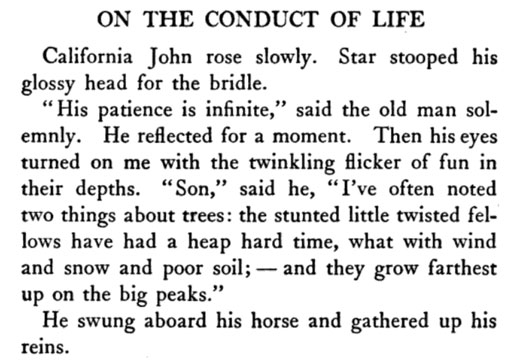
Fair Winds and Following Seas
Next morning our friend must have risen with the sun, and we were still beneath our blankets when the incense of his coffee and bacon drifted down our cabin hatch. Presently the sound of ropes falling on deck warned us he was getting under weigh, and we arose to say goodbye to him.
“Good morning,” said he. “I’m sorry to disturb you so early, but I want to catch the first of the flood. With luck it’ll carry me into the Rhine and I’ll be in Germany by evening. Now I’ll cast off and go — and see what this good day’s got in store for me.”
“A fair tide and a fair wind is a fine beginning, anyway. Good-bye, you two. We’ll meet again somewhere, for certain, if only you follow that impulse you had last night. I don’t want to influence you unduly; but, remember — one step does it and you’re out of the rut for good. Good-bye. God bless you both.”
He set his jib and the little green yacht fell off before the wind and headed for the harbour entrance.
She sailed away with the sun shining bright upon her, and upon the white head of the man at her helm. Presently she entered the broad river, and we saw our friend look back and wave his hand in farewell. Then the boat was hidden by a bank of golden sand, and the last we saw of her was her little Red Ensign, a tiny flame outlined against the sky.
The Beginning
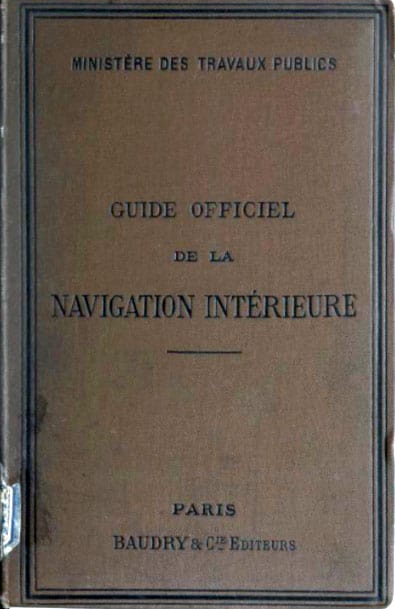
I am not sure, because the words of that elderly adventurer seem to have set us thinking. I notice we do not say very much, but I know we think a lot. For, at intervals during the cold and fogs of this last winter, there have passed between my wife and me some detached but significant utterances — such as:
- “I don’t see why I couldn’t get on with my writing aboard a boat just as well as I can inside this flat.”
- “Only £200 a year! Hang it! We ought to be able to earn that much between us, you’d think?”
- “I think, my dear, one of those steam-cookers would be a splendid thing to have if we, for anyone living aboard a small boat.”
- “What a foul fog! It hurts to think of the sun shining, now, in the south of France.”
- “May the Devil run away with that damned loudspeaker next door. You know, if this flat was a boat, we could move it out of hearing.”
- “If I get bronchitis again next winter. My dear, I don’t think I could stand another winter here.”
Also we have purchased a monumental work entitled, Guide Officiel de la Navigation Interieure, published by the Ministere des Travaux Publiques. This is a fascinating work, heartily to be recommended. It has a lovely map.
Also we have just heard of a little boat.
In fact, we have been to look at her. She is sound and very strong. She has two good berths and a galley and lots of stowage space. Also she has a little auxiliary motor. And her mast is in a tabernacle. And she is for sale. And we have fallen in love with her.
So perhaps this is not the end of this story. In fact, we hope and we pray this story has only just begun.
I’m unclear on whether this story is in the Public Domain. Many folks claim that it is, although I have my doubts. You can find it all over the web, so I’ve shared it too. If you are the rights holder and would like me to remove it, please contact me.
Become A Money Boss And Join 15,000 Others
Subscribe to the GRS Insider (FREE) and we’ll give you a copy of the Money Boss Manifesto (also FREE)

